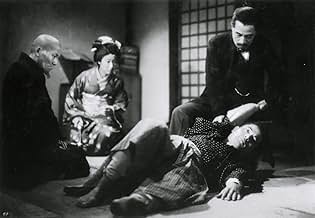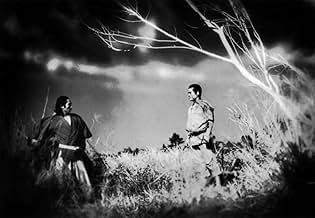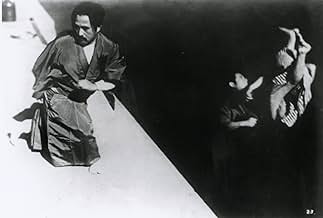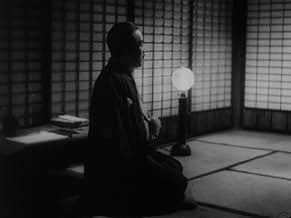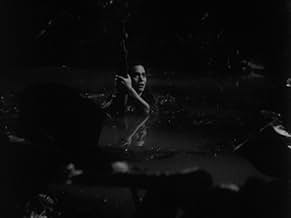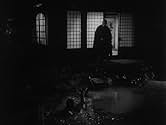Füge eine Handlung in deiner Sprache hinzuSugata, a young man, struggles to learn the nuance and meaning of judo, and in doing so comes to learn something of the meaning of life.Sugata, a young man, struggles to learn the nuance and meaning of judo, and in doing so comes to learn something of the meaning of life.Sugata, a young man, struggles to learn the nuance and meaning of judo, and in doing so comes to learn something of the meaning of life.
- Regie
- Drehbuch
- Hauptbesetzung
- Hatta
- (as Michisaburo Segawa)
- Monma's pupil
- (Nicht genannt)
Empfohlene Bewertungen
Having said that, you will find this to be one of Kurasawa's most interesting projects. Two things...
One is that this was made by the bad guys during the war. Incredible atrocities were being committed in the name of racial superiority and the supposition of a refined nobility. Japanese, German and American films (even Italian ones) turned to reinforcing the national character. In the Japanese case, that was linked to matters of honor refracted through Shinto spirituality, honor of a past ideal that never really existed, which in US terms means what "conservatives" tout.
It was a terrible exercise, more obvious in looking at it from the outside and knowing the context. Kurosawa's story was every bit as engineered for this purpose as any Reifenstahl project. Oddly, this film is fragmented because the sensors thought it not ennobling enough. One presumes that Kurosawa's moments of reflection, and possibly a whole love story, were among the half of the movie that was removed. So just on the level of the story itself (a modernized samurai tale), its of interest.
But it IS Kurasawa, so we have to pay attention to the way the camera engages with the space. This is his very first film as director, though he had written before. In all his films he registers the camera first in a space and then allows action to happen in that space. He has three periods of different types of spatial identity, each illuminating, each inventing new language. But this is before all that and what we have is clear, overt experimentation with space. Some of it is quite thrilling, quite independent of the fascist movement of the story proper.
Even here, he is breaking the rules of flat Japanese composition from eons of painting. He was considered unJapanese in his native country and never very popular. So at the same time that those censors were chopping story and posture they must have been shaking their heads at this three dimensional art, and wondering if they had already lost the war and if they won, what for?
Ted's Evaluation -- 3 of 3: Worth watching.
Wusstest du schon
- WissenswertesWhen asked about his experience filming his debut movie, Akira Kurosawa said "I simply enjoyed it. I went to sleep each night looking forward eagerly to the next day's shooting, and there was absolutely nothing painful in the experience... the whole task was carried out with a feeling of ease."
- Zitate
Sanshiro Sugata: The spirits of heaven and earth congregate in our nation of gods. For us they have built Mt. Fuji that towers for eternity. For us they have brought water to flow around our islands. For us they have created the beauty of cherry blossoms...
[he stops and remembers Sayo]
Buddhist Priest: [hits Sanshiro on the head] Idiot! This is an important match. What the hell are you thinking?
Sanshiro Sugata: I can't do it. I can't win.
Buddhist Priest: What? Are you afraid of Hansuke Murai?
Sanshiro Sugata: No. Someone stands between him and me.
Buddhist Priest: Who?
Sanshiro Sugata: His daughter.
Buddhist Priest: You love her?
Sanshiro Sugata: No. It's not that. Priest, I saw her praying selflessly for her father. It was beautiful and I was touched. That's the problem. How can I overcome it?
Buddhist Priest: Stupid! Be pure and innocent like her.
Sanshiro Sugata: I can't.
Buddhist Priest: You can. You once were.
Sanshiro Sugata: When?
Buddhist Priest: [pointing to the pond] Sanshiro Sugata found new life there. Have you forgotten? What is your life, Sanshiro?
- Alternative VersionenAlthough originally released in Japan at 97 minutes, it was re-edited and re-released in Japan in 1952 at 80 minutes. This 80-minute version is all that is currently available, and it includes some slight changes in the film's structure as well as its running time.
- VerbindungenFeatured in Kurosawa: The Last Emperor (1999)
Top-Auswahl
- How long is Sanshiro Sugata?Powered by Alexa
Details
- Laufzeit1 Stunde 19 Minuten
- Farbe
- Sound-Mix
- Seitenverhältnis
- 1.37 : 1
Zu dieser Seite beitragen


